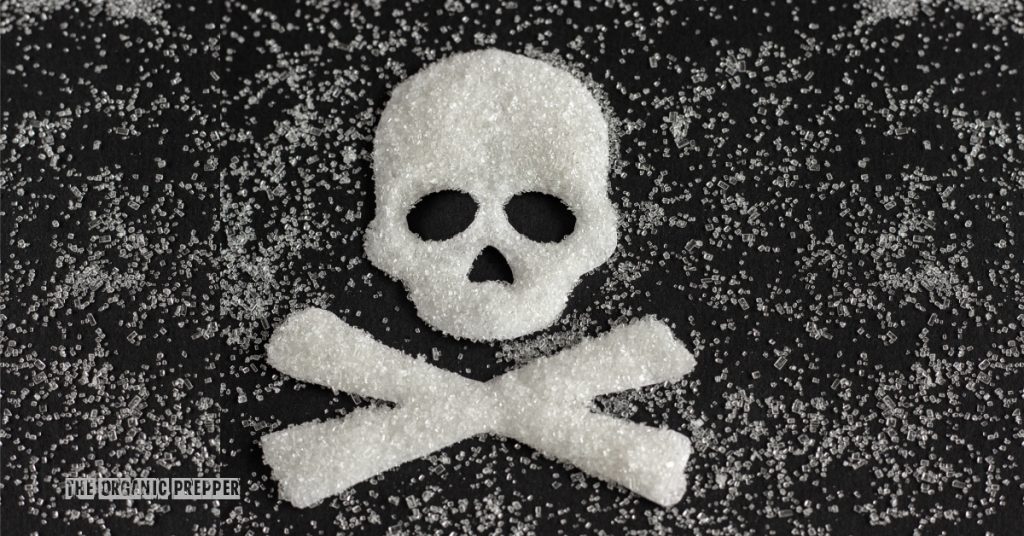by Rowan O’Malley, The Organic Prepper:

Like most prepper-types, I love my stuff. I own countless gadgets and items that may be useful during an apocalypse. One of my favorites is my Leatherman Wave Plus multitool, which offers a plethora of mini emergency tools and yet folds up so small it will fit in the palm of my hand. You betcha, should the apocalypse roll through in my lifetime, I will have a lot of stuff to throw in my BOB on the run.
However, this slow-burning SHTF that we’re in today (frogs in a pot of water, anyone?) has had me questioning my prepper priorities. What if I have to flee and leave everything behind? My hero, Selco, whose writings I first encountered here on The OP has often identified his top SHTF priorities to not be things.
TRUTH LIVES on at https://sgtreport.tv/
My Most Valuable Prep and Why
I now consider my brain to be my most valuable prep. It is, after all, where I store my most important stuff: my knowledge about herbs and medicines and my Irish “get up and go” that has got me through my life thus far. Now, you know what we preppers say, “One is none!” We all only have one brain, my friends! A recent bit of learning completely changed my relationship with my brain and how I treat it.
I thought I was eating a pretty decently healthy diet…Heck! I’m a homesteader, for goodness sake! I grow and eat a LOT of kale. What I learned was that eating sugar doesn’t just affect my body in the ways that I was familiar with….risk of diabetes, obesity, and inflammation, to name a few. I learned about new research regarding a potential connection between eating too much sugar and dementia.
Oh no, not my brain! As someone who lives a deeply thinking and reflective life as a writer, this flipped a switch for me. Suddenly, my weakness for chocolate and excessive sugar treats on runs into town looked different. What was I doing to myself? What risks was I exposing my precious brain to?
Our Brain and Sugar and Insulin and Alzheimer’s Disease
This new research about the relationship between dementia and sugar is in its early stages, and everything is not clear. The term “Type 3 Diabetes” is controversial and not recognized today as a formal diagnosis. However, what we do know is that there is one gene, the APOE4, which appears to be related to around 50% of Alzheimer’s cases.
According to the Mayo Clinic, “a variant of the so-called Alzheimer’s gene, APOE4, seems to interfere with brain cells’ ability to use insulin, which may eventually cause the cells to starve and die.” When someone has this gene variation, their chances of having Alzheimer’s are 10 to 15 times higher. In addition, it is also widely accepted that having type II diabetes also increases someone’s risk of getting Alzheimer’s.
The Mayo Clinic article also details the results of a research project in which they confirmed that a new insulin nasal spray not only slowed the decline of Alzheimer’s patients but sometimes even improved their symptoms. You’d think that this would be front-page news. I’m not sure why it’s not out there too much in the MSM.
My New Brain Maintenance Plan
In my own family history, I have a grandmother who lost a leg to diabetes and died shortly thereafter. I also have a great-uncle who had dementia and had to live in a secure facility. It was heartbreaking to visit him. The O’Malley women are of big-boned farm stock, and we tend to put on weight as we age. Several members of my immediate and extended family are pre-diabetic or diabetic, and one of these cousins recently had a stroke.
I don’t know if I carry the gene mentioned in the research, but I decided that I would take some serious steps to manage my risk and protect my most important prep: my brain. I reasoned that, whatever the relationship between dementia and diabetes and genes, it would help if I did not expose my body and my brain to large spikes in sugar.
I decided to give up all processed sugar entirely. I already ate a pretty healthy diet daily, but I decided to give up my often stress-induced chocolate and sweet binges for good. Now that I know that sugar spikes in my brain may be laying the groundwork for dementia, I would not enjoy them quite as much.
So, no white flour, no added sugar in anything, no fruit juices, no honey, no maple syrup. Basically, I only eat sugar when it is encased in fiber in fruit. I make Irish soda bread every week with whole wheat and spelt flour, and my crackers are multi-grain rye. Many people might be reading this thinking, what a pathetic doldrum my life must be without sweet treats. I disagree! In fact, I have adapted my favorite treat, Mexican Hot Chocolate, by adding two chopped-up dates to it instead of maple syrup. I find that now I taste the cocoa flavor more and enjoy the fact that it is delicious AND good for me at the same time. Another side benefit has been increased morning energy and a substantial loss of belly fat. Woo hoo!
The History of Our Brains: Why is sugar hard to quit?
I thought some background would provide context as to what we’re up against here in America regarding sugar. We are literally programmed to eat sweets to survive. Back in our hunter-gatherer days, a rare taste of honey was the sweetest thing a human might enjoy. The rest of our food was not sweet and was hard to acquire. When we found sweet fruit, our brains told us to eat it and not to stop because it helped us survive the lean times.
Read More @ TheOrganicPrepper.ca



